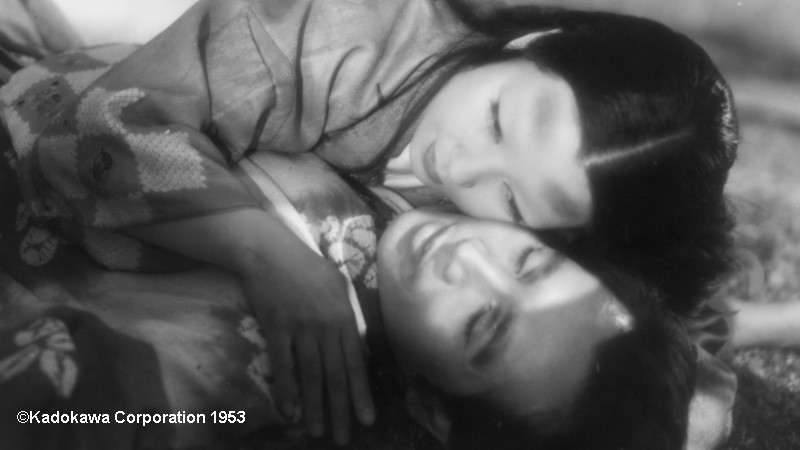Ugetsu
Ugetsu Monogatari

Screening Schedule
|
No physical screenings scheduled. |
- Direction: Kenji Mizoguchi
- Script: Matsutaro Kawaguchi, Yoshikata Yoda
- Cinematography: Kazuo Miyagawa
- Editing: Mitsuzō Miyata
- Sound: Iwao Otani, Akira Suzuki
- Music: Fumio Hayasaka
- Actors: Machiko Kyō, Masayuki Mori, Kinuyo Tanaka, Sakae Ozawa, Mitsuko Mito, Kikue Mori, Ryosuke Kagawa, Ichiro Amano, Sugisaku Aoyama, Ichisaburo Sawamura
- Production: Daiei Film
- Producers: Masaichi Nagata
- Costumes: Shima Yoshimi, Tadaoto Kainosho
- Sets: Uichiro Yamamoto
- Make Up: Zenya Fukuyama
- Format: DCP
- Color: B/W
- Production Country: Japan
- Production Year: 1953
- Duration: 97'
- Contact: Academy of Motion Picture Arts and Sciences Film Archive
- Awards/Distinctions: Silver Lion, Pasinetti Award – Venice FF 1953
Kenji Mizoguchi
Kenji Mizoguchi (1898–1956) was a foundational figure of the Japanese cinema and one of its uncontestably supreme artists. Mizoguchi remains best known today for his late masterworks of the 1950s and especially The Life of Oharu, Ugetsu and Sansho the Bailiff, haunting visions of feudal Japan tragically shaped by the suffering heroines and inexorable tracking shots often declared the pillars of Mizoguchi’s cinema. Exalted by Godard, Rivette, Rohmer, the slow unspooling of time and space in Mizoguchi’s late films was celebrated as a sublime realization of the stylized realism preached by the spiritual father of the nouvelle vague, André Bazin. With their obsessively detailed attention to period costume, architecture and the traditional Japanese arts and literature from which they drew deep inspiration, Mizoguchi’s late films also branded him, internationally, as the quintessentially Japanese filmmaker.
Filmography
1933 White Threads of the Waterfall
1935 Oyuki the Virgin
1936 Sisters of the Gion
1937 Straits of Love and Hate
1946 Utamaro and His Five Women
1947 The Love of Sumako, the Actress
1948 Women of the Night
1951 Miss Oyu
1952 The Life of Oharu
1953 Ugetsu
1954 Sansho the Bailiff
1955 Tales of the Taira Clan
1956 Street of Shame
1935 Oyuki the Virgin
1936 Sisters of the Gion
1937 Straits of Love and Hate
1946 Utamaro and His Five Women
1947 The Love of Sumako, the Actress
1948 Women of the Night
1951 Miss Oyu
1952 The Life of Oharu
1953 Ugetsu
1954 Sansho the Bailiff
1955 Tales of the Taira Clan
1956 Street of Shame














